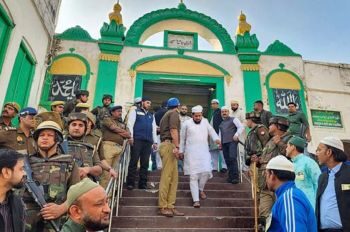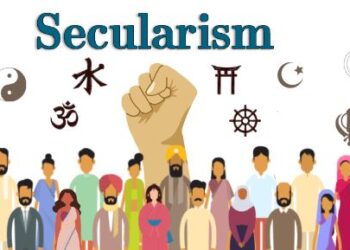
During the rule of BJP – led government, the country has witnessed many setbacks. Their measurable performances were unprecedented both internally and with respect to external affairs. One policy decision made by the government viz. demonetization in 2016 has totally hampered our economy to a great extent. Its ill effects could not be overcome till date. In the same way the ‘Make in India’ policy was projected alarmingly in the beginning. But its implementation is at stake now. Besides, many of the products that could be made in India are being imported mainly from China.
As far as diplomatic relationship with China is concerned, no improvement has taken place. Despite many diplomatic discussions with them, China has been showing certain parts of Indian territory (Arunachal Pradesh) as if they are Chinese. Even when it is about to complete two terms of its rule, BJP is still blaming the previous Congress government for the external relations with China.
Despite all these setbacks, the committed plan of the saffronists is being executed systematically. Of the three plans in its agenda, two have already been accomplished by the BJP led rule.
The first plan was the scrapping of the special status accorded to Jammu and Kashmir State vide Art. 370 of Indian Constitution. The article has been wiped out and the State has been minimized to the level of two Union Territories on the political landscape. The challenge against the scrapping lies at the apex court, as a pending case which is to be heard by a Constitutional Bench.
The second plan was the construction of Ram temple at Ayodhya. With disrespect to The Places of Worship Act 1991, the Babri Masjid was demolished in December 1992 while the top leaders of BJP witnessed it silently, in fact with jubilation. The apex court also delivered its verdict, favourable to the demolishers by approving construction of Ram Temple at the site of demolition and dispute. The foundation for the construction of Ram Temple has been laid by Narendra Modi, the Prime Minister of the ‘secular’ country. He has foretold that the temple will be opened in 2024 for public-worship.
The first plan, was the scrapping of the promise constitutionally accorded to people who had expressed their solidarity to be with India with integrity, after Independence. Till now no elected representatives for them. The second plan was gross violation of law and order and disregard to the legislation enacted by the Parliament.
The third plan initiated now by the BJP rule is the legislation of Uniform Civil Code (UCC) for which BJP is misusing Art. 44 of the Constitution for defence.
There are umpteen provisions in the Directive Principles of State Policy that have to be prioritized. It does not mean that Uniform Civil Code is irrelevant. Before bringing such codes, the history of uniform criminal codes must be analysed. It is obviously the Indian Penal Code, framed during the British rule in 1860. Before that different criminal codes were cited and differential punishments were awarded for crimes committed by various castes in Hindu religion. The dispensation of criminal justice was discriminatory.
It was not so in respect of other religions. Resisting the opposition by the Hindu religious sects against Indian Penal code, it was legislated by the British. Likewise they could not do so for civil code. Uniform Civil Code is not practical in Hindu religion, whereas it is also found comparatively in other religions. Before making uniform civil codes for various discriminated sects in Hindu religion, framing uniform civil codes for all the religions is meaningless. In the name of religious freedom, discriminatory, divisive and denial treatments are in practice in Hindu temples. When the Constitution envisages equality for all, the present Hindu Civil law, which argues in support of caste varna system continues to be discriminatory even to the Hindus. Without making uniform Hindu civil law, appealing for uniform civil codes for all is not right.
It is nothing but homogenization of civil law as per Hindutva. The 21st National Law commission had opined that ‘formulation of a uniform civil code is neither necessary nor desirable at this stage’. What has prompted the 22nd National Law Commission to seek views from the public on uniform civil codes? It is the urge on the part of the BJP led rule to commence the process for framing uniform civil codes. Anything done with a motive loses its value and veracity.
There is one more aspect to be debated. Often the need for unity of people is confused, of course deliberately by the rulers, with the need for uniformity like one nation, one culture, one language, one religion and so on. How can it suit a diversified sub-continent? The mere mentioning of uniform civil code in the Constitution will not suit. Only when all the religion wise discriminating laws are set right, the common civil code could be brought in. It would take a long time. Until then any move to frame uniform civil codes would bring only chaos in the country.









